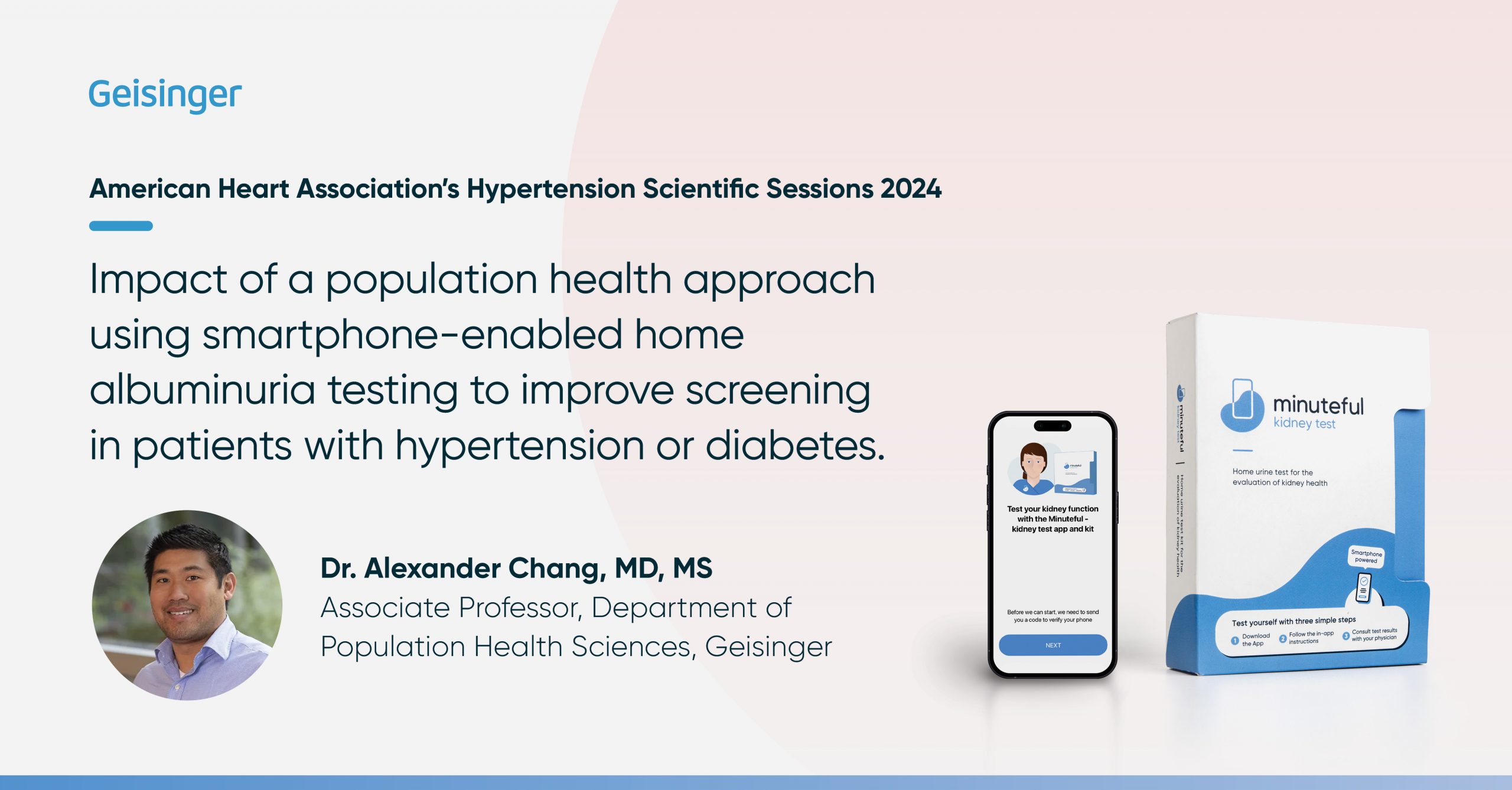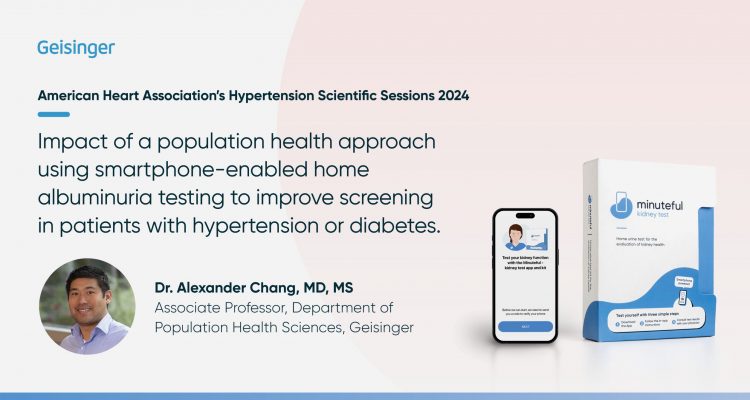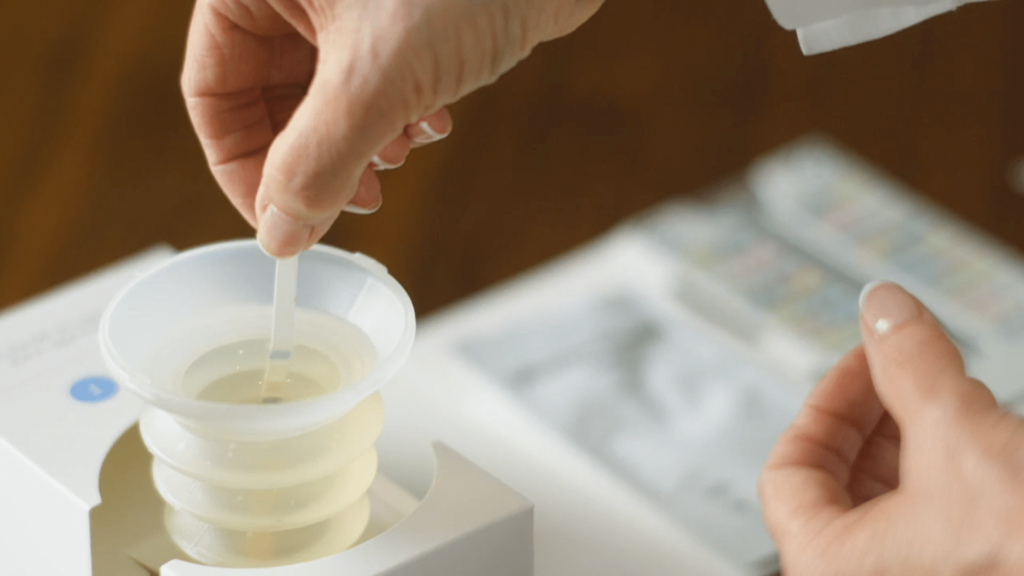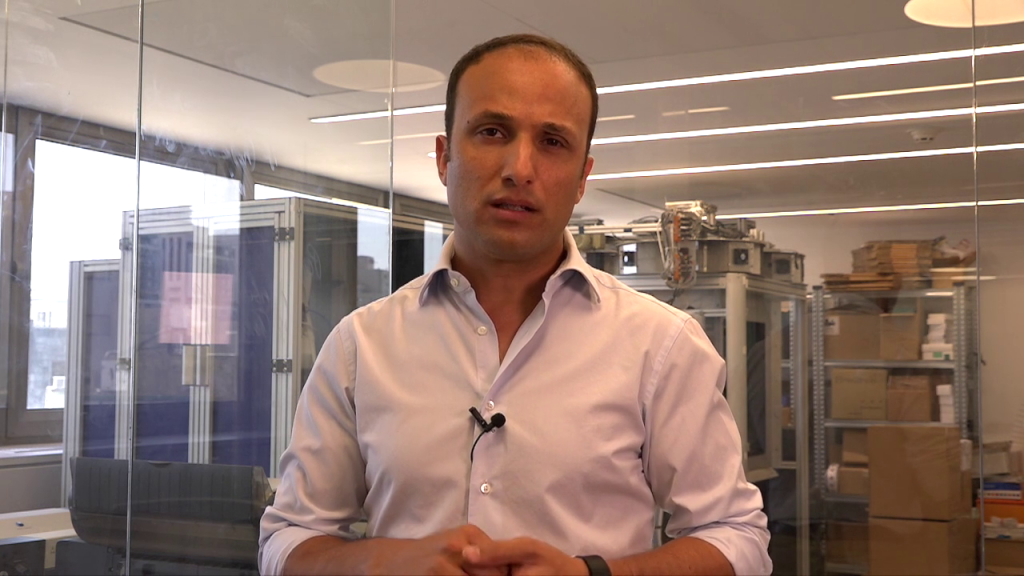The results of this study were recently presented by Dr Alexander Chang, Associate Professor, Department of Population Health Sciences, Geisinger at the American Heart Association’s Hypertension Scientific Sessions in Chicago.
Chronic kidney disease (CKD) poses a significant risk to millions of American adults, with one in three individuals at-risk of the condition. Despite the importance of regular urine albumin-to-creatinine ratio testing (uACR), many people fail to complete this crucial test.
However, with the widespread accessibility of smartphones among 90% of American adults, solutions like Minuteful Kidney represent new opportunities. Leveraging smartphone technology, at-home digital health testing has the potential to transform the way providers, payers, and patients address health challenges like CKD. Using the Minuteful Kidney solution can help eliminate barriers to health, reduce health inequities and drive patients back into care.
The collaboration between Geisinger, Healthy.io and Boehringer Ingelheim included ~4,000 adults diagnosed with type 2 diabetes or hypertension, who had not completed a uACR test in the last year. These patients were provided with Healthy.io’s Minuteful Kidney uACR test kit and smartphone app to evaluate the adherence to testing compared to usual care in improving CKD testing rates for at-risk individuals.
The study revealed:
- Minuteful Kidney dramatically improved ACR screening rates compared to the control group
- Satisfaction was high among individuals in the home testing group (53+ NPS, 94% rated the test as easy or very easy to complete, 88% stated preference for at home testing)
- Majority of patients communicated with prodivers about results with further testing
- The increase in ACR testing is consistent across demographic subgroups
| Home Testing Group N (%) | Control Group N (%) | Difference | p- value | |
|---|---|---|---|---|
| Hypertension cohort (n=3998) | 53.4% | 12.5% | 40.9% | <0.001 |
| Diabetes cohort (n=3998) | 52.7% | 30.0% | 22.7% | <0.001 |






